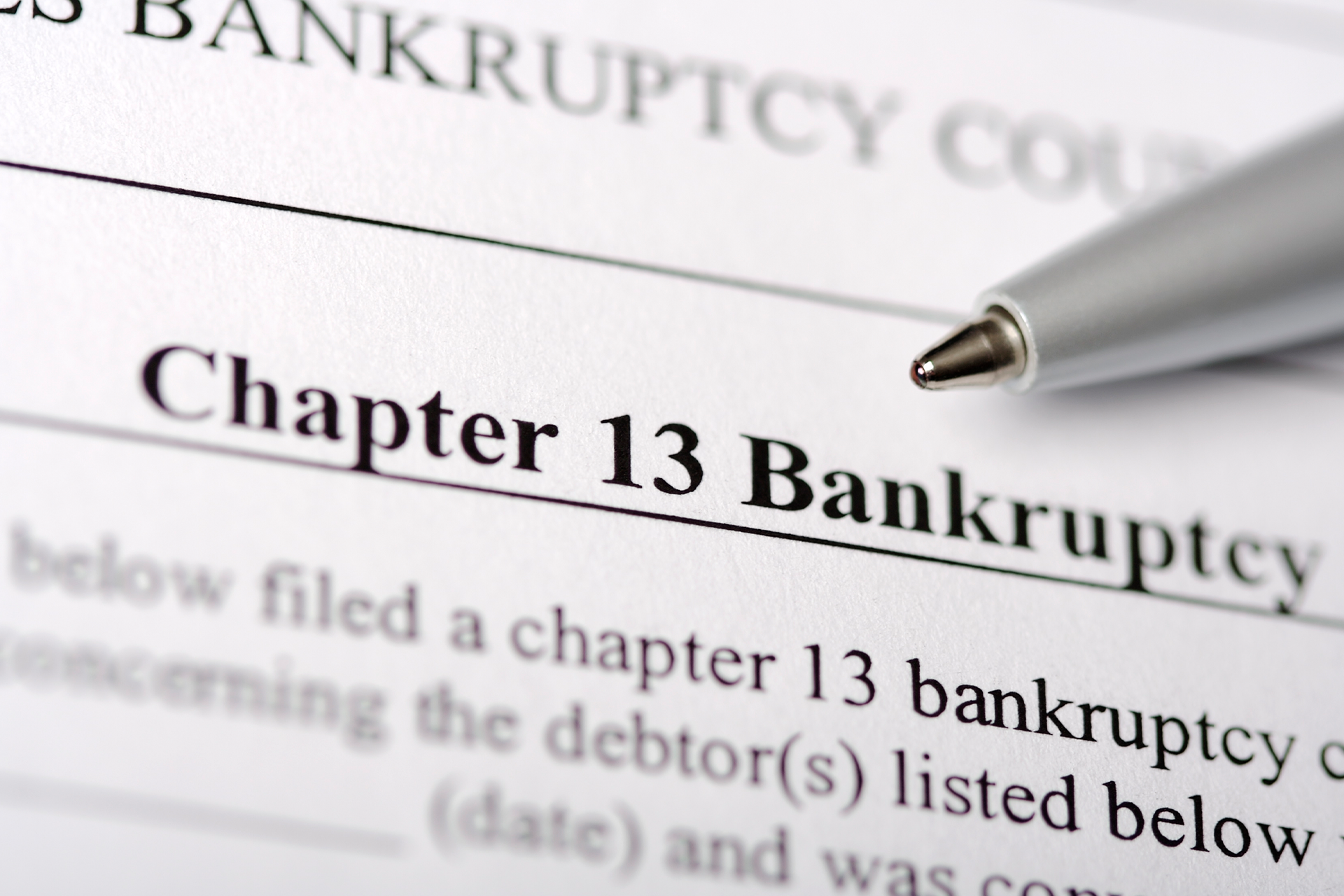You can take advantage of Chapter 13 bankruptcy to manage your debts. Chapter 13 bankruptcy is referred to as a “reorganization” bankruptcy because it gives you the chance to restructure your debt into one monthly payment while allowing you to keep many of your most important assets. This is different from a Chapter 7 “liquidation” bankruptcy wherein the bankruptcy Trustee sells your non-exempt personal property to pay off your creditors. Chapter 13 is the better option if you have non-exempt property that you want to hold on to that is at risk of being sold in a Chapter 7 case. Chapter 13 is also a great tool for avoiding foreclosure or repossession. To qualify for Chapter 13, you need to show to the court that you have enough disposable income to make the monthly payments under a court-approved repayment plan.

Chapter 13 Repayment Plan for Debts
The crux of any Chapter 13 bankruptcy case is the Chapter 13 repayment plan that requires you to make monthly payments to your creditors for the next three-to-five years. The duration of your repayment plan will depend on your monthly income. If your average income falls below the state median, then your repayment plan can cover three years; however, if your income is higher than the state average, then your plan can cover five years. The duration of your repayment plan will ultimately be decided by the bankruptcy court, but this is a good starting point when creating your plan. As far as the payment amount is concerned, the total amount paid to creditors under the Chapter 13 plan must be at least as much as creditors would have received if you filed for Chapter 7 bankruptcy. However, if your monthly income exceeds the minimum requirements, then you will be required to pay a higher amount. You will begin making payments to the Trustee within the first month of filing. However, the Trustee will not distribute these payments to creditors until the court confirms your plan. The Chapter 13 plan will be confirmed if the court determines it meets the requirement of the Bankruptcy Code and is fair to creditors.
Chapter 13 Bankruptcy Filing Requirements
Like in a Chapter 7 bankruptcy case, a Chapter 13 case begins when you file a petition with the bankruptcy court and pay the filing and administrative fees. The petition requires you to provide information regarding your monthly income, assets, current monthly expenses, debt, and your debt repayment plan. You also need to show the court that you filed your tax returns for the past four years, and that you’ve completed your credit counseling requirement. Once the petition is filed, the Automatic Stay kicks in just like in a Chapter 7 case. The automatic stay puts a halt to any collection efforts by creditors, including foreclosure and repossession proceedings.
You cannot file for Chapter 13 bankruptcy if you have more than $419, 275 in unsecured debt, such as credit card bills or personal loans, or if you have more than $1,257,859 in secured debts, such as mortgages and car loans. Note, these debt limits are scheduled for revision on April 1, 2022. Lastly, businesses such as corporation and LLCs cannot file for Chapter 13.
Life After Court Confirms Your Repayment Plan
Once the repayment plan is approved, you are required to make all the monthly payments for the duration of the plan. These payments are made to the bankruptcy Trustee, who will then disburse those payments to your creditors in terms of priority. The Trustee will usually pay attorney’s fees and trustee fees first, followed by secured debts (mortgages and car loans), then priority debts (taxes and child support), and lastly unsecured debts (medical bills, credit cards, personal loans). After successfully completing your repayment plan, any remaining unsecured debt is discharged. Failure to make agreed-upon payments will result in your case being dismissed. If your case is dismissed, your creditors will be allowed to resume their collection efforts against you, including foreclosure and repossession. Under the Federal Fair Credit Reporting Act, a Chapter 13 bankruptcy will stay on your credit report for seven years from the date of filing.

Let Gordon Delic & Associates Be Your Bankruptcy Attorneys
Bankruptcy can sound scary, but it can be a useful way to get your finances back on track and ultimately have a fresh start. With millions of American laid off or losing their jobs due to Covid-19, there is no shame in filing for bankruptcy. Filing a Chapter 13 bankruptcy and preparing a repayment plan is a complicated process full of uncertainty. The bankruptcy attorneys at Gordon, Delic and Associates will help determine your eligibility and come up with a repayment plan that ensures your success. Contact us or call us at (208) 900-9509 today!



